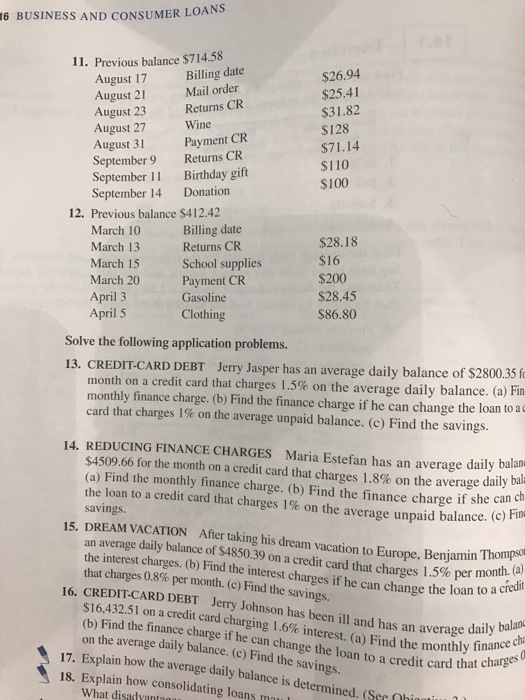Financial liberalisationthe removal of capital controls and the likehas made all of this much easier. So has the internet, which enables cash to be shifted all over the world rapidly, cheaply and anonymously. For more on these controversial overseas centers, please see the complete article at http://www. economist.com/node/8695139. The role of global banks, financial investment banks, and securities companies has evolved in the previous few decades. Let's have a look at the primary purpose of each of these institutions and how it has actually altered, as lots of have actually combined to end up being international monetary powerhouses. Traditionally, global banks extended their domestic function to the international arena by servicing the requirements of international corporations (MNC).
For instance, a business purchasing items from another country may require short-term financing of the purchase; electronic funds transfers (also called wires); and foreign exchange transactions. Worldwide banks supply all these services and more. In broad strokes, there are different kinds of banks, and they might be divided into several groups on the basis of their activities. Retail banks deal directly with customers and generally focus on mass-market items such as checking and savings accounts, mortgages and other loans, and credit cards. By contrast, private banks typically offer wealth-management services to households and people of high net worth. Company banks offer services to services and other companies that are medium sized, whereas the clients of corporate banks are generally major organization entities.
Financial investment banks also focused mainly on the development and sale of securities (e. How old of a car will a bank finance. g., debt and equity) to assist business, governments, and large organizations accomplish their funding goals. Retail, personal, organization, corporate, and financial investment banks have actually generally been different entities. All can operate on the worldwide level. In most cases, these different organizations have actually just recently merged, or were obtained by another institution, to create international monetary powerhouses that now have all kinds of banks under one giant, worldwide business umbrella. Nevertheless the merger of all of these types of banking firms has actually created global economic challenges. In the United States, for instance, these 2 typesretail and investment bankswere disallowed from being under the same corporate umbrella by the Glass-Steagall ActEnacted in 1932 during the Great Depression, the Glass-Steagall Act, officially called the Banking Reform Act of 1933, developed the Federal Deposit Insurance Coverage Corporations (FDIC) and implemented bank reforms, starting in 1932 and continuing through 1933.

Enacted in 1932 during the Great Anxiety, the Glass-Steagall Act, officially called the Banking Reform Act of 1933, developed the Federal Deposit Insurance Coverage Corporations (FDIC) and carried out bank reforms, starting in 1932 and continuing through 1933. These reforms are credited with supplying stability and lowered threat in the banking industry for years. Amongst other things, it restricted bank-holding companies from owning other financial companies. This served to guarantee that investment banks and banks would remain separateuntil 1999, when Glass-Steagall was repealed. Some experts have actually criticized the repeal of Glass-Steagall as one cause of the 20078 monetary crisis. Due to the fact that of the size, scope, and reach of United States monetary firms, this historic recommendation point is important in comprehending the effect of US firms on global services.
Worldwide services were also part of this pattern, as they sought the biggest and strongest monetary players in several markets to service their worldwide financial requirements. If a business has operations in twenty nations, it chooses two or 3 large, global banking relationships for a more economical and lower-risk approach. For example, one big bank can offer services more cheaply and much better manage the business's currency exposure throughout numerous markets. One large monetary https://www.canceltimeshares.com/blog/timeshare-cancellation-company-review-of-wesley-financial-group-llc-2/ business can provide more advanced risk-management choices and items. The obstacle has actually become that in many cases, the party on the opposite side of the deal from the global company has turned out to be the international financial powerhouse itself, developing a conflict of interest that many feel would not exist if Glass-Steagall had actually not been reversed.
Meanwhile, global businesses have gained from the broadened services and abilities of the worldwide monetary powerhouses. For instance, US-based Citigroup is the world's largest financial services network, with 16,000 offices in 160 countries and jurisdictions, holding 200 million customer accounts. It's a monetary powerhouse with operations in retail, personal, organization, and investment banking, in addition to possession management. Citibank's global reach make it a good banking partner for large global firms that desire to be able to handle the monetary requirements of their staff members and the company's operations worldwide. In truth this strength is a core part of its marketing message to global companies and is even published on its site (http://www.
All about What Do You Do With A Finance Degree
htm): "Citi puts the timeshare monthly payments world's biggest monetary network to work for you and your company." Outsourcing Day Trading to China American and Canadian trading firms are employing Chinese employees to "day trade" from China during the hours the American stock market is open. In essence, day trading or speculative trading occurs when a trader purchases and sells stock rapidly throughout the day in the hopes of making fast profits. The New York Times reported that as lots of as 10,000 Chinese, generally boys, are hectic working the night shift in Chinese cities from 9:30 p. m. to 4 a. m., which are the hours that the New York Stock Exchange is open in New York.
Initially, American and Canadian firms are wanting to access wealthy Chinese clients who are technically not enabled to utilize Chinese currency to purchase and sell shares on a foreign stock market. Nevertheless, there are no limitations for trading stocks in accounts owned by a foreign entity, which in this case usually comes from the trading firms. What do you need to finance a car. Chinese traders likewise make money less than their American and Canadian counterparts. There are ethical concerns over this plan since it isn't clear whether the usage of traders in China violates American and Canadian securities laws. In a New York Times short article prices quote Thomas J.
regulators. Are these Chinese traders essentially acting as brokers? If they are, they would require to be registered in the U.S." While the regulative issues may not be clear, the trading firms are doing well and growing: "numerous Chinese day traders see this as an opportunity to quickly get brand-new riches." Some American and Canadian trading firms see the chance to get "earnings from trading operations in China through a mix of cheap overhead, rebates and other financial rewards from the significant stock exchanges, and bottled-up demand for broader financial investment alternatives amongst China's elite." Capital markets supply an efficient mechanism for people, companies, and governments with more funds than they require to transfer those funds to people, business, or governments who have a shortage of funds.
